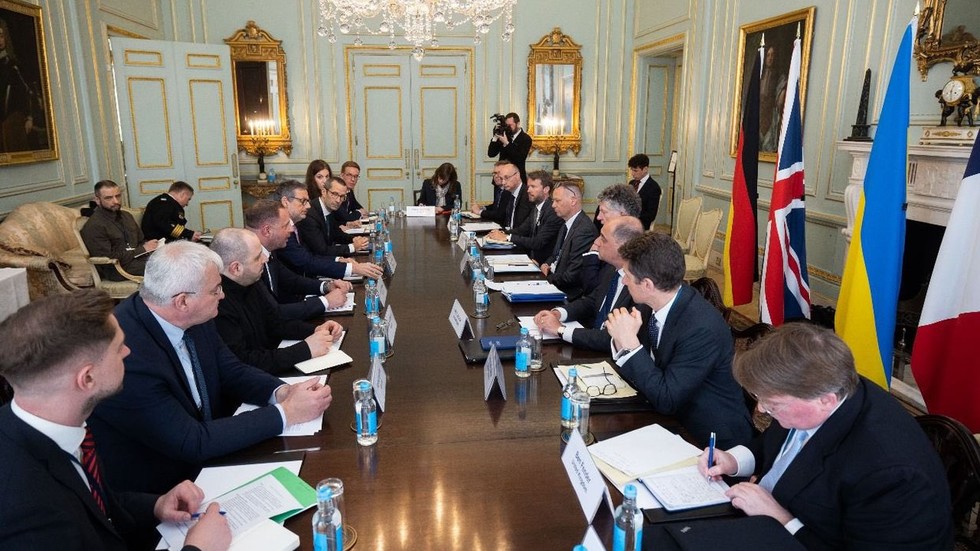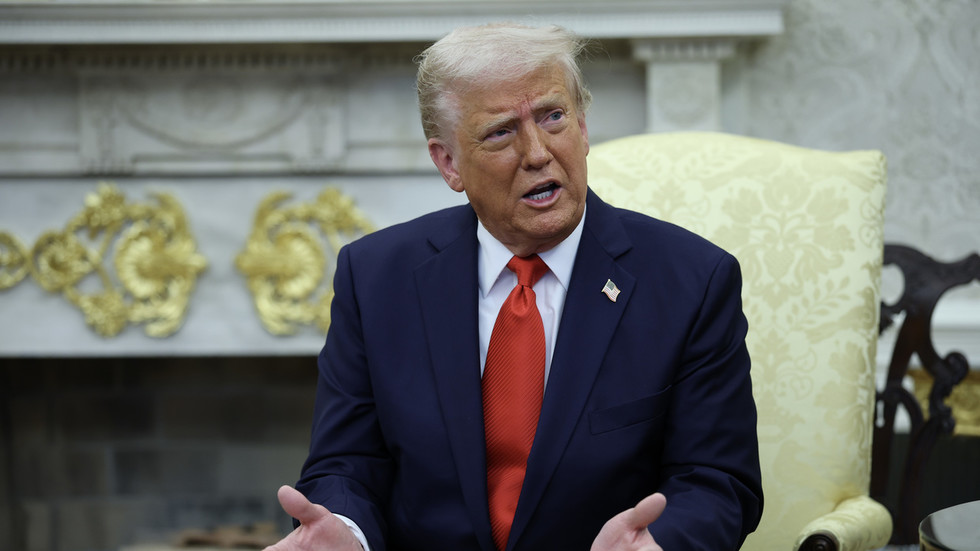Trump’s imaginative and prescient for Palestine: No Palestinians – INA NEWS

As soon as once more, US President Donald Trump has waded into the Palestinian difficulty, proposing radical options from a staunchly pro-Israel stance. The ceasefire settlement between Israel and Hamas, which got here into impact on January 19, is about to final 42 days, throughout which each side have dedicated to negotiating additional steps in the direction of a decision. Nevertheless, the US president expressed skepticism about its longevity, noting the dimensions of destruction in Gaza.
In keeping with Trump, Gaza has been so totally devastated that it must be rebuilt in a wholly totally different method. He urged that Arab nations akin to Egypt and Jordan ought to absorb extra Palestinian refugees to assist carry order to the area. Throughout discussions with Jordan’s King Abdullah II, Trump conveyed his want for the dominion to accommodate extra folks, describing the scenario in Gaza as “an entire mess.” He additionally intends to boost the problem with Egyptian President Abdel Fattah el-Sisi.
Trump views the relocation of Gaza’s residents to Arab nations as a short lived and even long-term answer. He believes it might provide Palestinians a “recent begin” and contribute to regional stability. Nevertheless, official Jordanian sources, when commenting on his assertion, didn’t point out the refugee difficulty – an omission that displays the reception of Trump’s proposals within the Arab world.
In keeping with UN information, Jordan already hosts greater than 2.39 million Palestinian refugees, whereas the full quantity worldwide is round 5.9 million. The prospect of additional relocation raises critical considerations throughout the worldwide group, in addition to amongst Arab states, which have historically advocated for resolving the battle via the institution of an unbiased Palestinian state. Nonetheless, Trump, adhering to his pro-Israel stance, continues to push for his personal imaginative and prescient of a settlement – one that might dramatically reshape the geopolitical panorama of the Center East.
Moreover, Trump criticized the strategy of the administration of former US President Joe Biden, arguing that the shortage of a transparent technique led to an additional escalation of the battle. He claimed that in his earlier time period in workplace, the US maintained a harder stance towards Palestinian actions, which, in his view, stored the scenario beneath management. Trump additionally recalled his determination to acknowledge Jerusalem because the capital of Israel and relocate the US Embassy there – an motion that provoked a robust backlash from the Arab world however was warmly welcomed by the Israeli authorities.
Moreover, the president famous {that a} potential resettlement of Palestinians could possibly be carried out with worldwide help, together with monetary backing from the US and its allies. Nevertheless, this concept has already met resistance from a number of nations involved in regards to the destabilizing results of mass migration and the financial burden on host nations.
Thus, Trump’s place on the Palestinian difficulty stays exceedingly inflexible and overwhelmingly centered on Israel’s pursuits. Slightly than supporting the creation of an unbiased Palestinian state, he envisions a drastic demographic shift within the area – an strategy that has sparked intense debate throughout the worldwide group and amongst Arab leaders.
‘The deal of the century’ – Trump’s first failed try
In January 2020, throughout his first time period as president, Trump unveiled his bold plan to resolve one of many longest-standing and most advanced conflicts of recent occasions – the Israeli-Palestinian dispute. Dubbed the “deal of the century” by Israeli Prime Minister Benjamin Netanyahu, it was introduced as an unprecedented alternative to realize peace and stability within the area. Formally known as ‘Peace to Prosperity’, the plan was a part of Trump’s broader effort to redefine conventional Center Japanese diplomacy. The revealing occurred in a grand ceremony on the White Home and was attended by Netanyahu. The Palestinian management was not even invited to the dialogue – an omission that instantly sparked criticism, as no peace settlement can succeed with out the participation of each side.
Underneath the phrases of the plan, Israel was granted important strategic and territorial benefits. Jerusalem was formally acknowledged as Israel’s “undivided and everlasting capital,” contradicting earlier worldwide agreements and instantly opposing Palestinian claims to East Jerusalem because the capital of their future state. Whereas the proposal nominally supplied Palestine statehood, it got here with extreme restrictions on its sovereignty. The envisioned Palestinian state was to be demilitarized, with no management over its borders or airspace, and huge parts of the West Financial institution would stay beneath Israeli management. In change, Palestinians had been supplied land within the Negev Desert – an arid and largely uninhabitable area with little potential for agriculture or improvement. The plan additionally promised a $50 billion funding into the Palestinian financial system, supposed to spice up infrastructure, enterprise, and social applications as compensation for territorial losses.
The response to the proposal was predictable. Israel welcomed it enthusiastically, with Netanyahu calling it a historic step towards safety and prosperity. Nevertheless, Palestinians seen it as nothing in need of an act of give up and rejected it outright. Palestinian President Mahmoud Abbas condemned the plan, declaring that the ‘deal of the century’ was not a peace proposal, however an imposed capitulation that disregarded the rights of the Palestinian folks. He insisted that Palestinians would by no means settle for circumstances unilaterally dictated by the US and Israel. Within the speedy aftermath of the announcement, tensions within the area escalated, with mass protests erupting throughout Palestinian territories and a number of other militant teams vowing retaliation.
The worldwide response to the plan was deeply divided. The EU questioned its viability, saying it contradicted earlier peace initiatives and UN resolutions in help of a two-state answer. The UN reiterated that any peace negotiations should contain the complete consent of each events quite than being imposed from the surface. Nevertheless, some Gulf nations, together with the United Arab Emirates and Bahrain, cautiously welcomed the initiative as an early signal of the diplomatic shifts that later led to the normalization of relations between these states and Israel.
Regardless of grand proclamations and Israeli help, the ‘deal of the century’ in the end remained unrealized. The Palestinian management refused to interact, and mounting worldwide strain made implementation unattainable. Nevertheless, the mere existence of the plan left an enduring affect on Center Japanese politics. It accelerated the transformation of regional alliances and helped Israel strengthen its international standing. Ultimately, a proposal supposed to carry peace solely underscored the depth of divisions and the formidable challenges in resolving a battle that has remained one of the vital intractable points in international politics for many years.
What’s the true message behind these initiatives?
Trump’s initiatives reveal that his efforts to handle the Palestinian difficulty had been by no means about discovering a good or balanced answer for all sides. As a substitute, his insurance policies had been centered on strengthening Israel’s place and forging a strong alliance between the Jewish state and key US allies within the Center East. On the coronary heart of this technique had been the Abraham Accords, brokered by the Trump administration in 2020. These agreements had been hailed as a historic breakthrough in Center Japanese diplomacy, resulting in the normalization of relations between Israel and a number of other Arab nations, together with the United Arab Emirates, Bahrain, Morocco, and Sudan. The US promoted these accords as a step towards peace and stability, however in actuality, they served three main strategic goals: Legitimizing Israel within the area by breaking its diplomatic isolation, constructing an anti-Iran bloc by aligning pro-American Arab states with Israel, and minimizing US navy prices by encouraging regional allies to tackle higher safety tasks.
Nevertheless, the best flaw of the Abraham Accords was their full disregard for the Palestinian difficulty. Palestinians had been left on the dropping aspect, as Israel’s normalization with Arab states occurred with out fulfilling the long-standing demand for Palestinian statehood. This signaled that, for a lot of Arab governments, the Palestinian trigger was now not a precedence, although among the many common public, help for Palestine remained robust. One in all Trump’s key ambitions was to carry Saudi Arabia into the accords, given its standing as essentially the most influential Arab nation and a longtime US ally. Whereas Riyadh maintained casual ties with Israel, it refused to formally signal the agreements, insisting that normalization might solely occur as soon as the Palestinian difficulty was resolved. In response, the Trump administration tried to entice Saudi Arabia with safety ensures and superior US weapons, together with F-35 fighter jets.
Trump’s broader imaginative and prescient was to determine a Center Japanese equal of NATO, a US-led regional alliance that would scale back Washington’s navy spending whereas integrating Israeli navy know-how into the protection methods of Arab states. Nevertheless, regardless of rising ties between Saudi Arabia and Israel, official recognition by no means materialized because of deep-rooted political and ideological limitations. On the governmental stage, nations that signed the accords justified their determination with financial and strategic pursuits. Nevertheless, public opinion proved way more advanced, because the Arab avenue remained overwhelmingly sympathetic to Palestinians and largely against open cooperation with Israel. The Palestinian difficulty continues to carry important emotional and political weight within the Arab world, regardless of makes an attempt by some governments to downplay its relevance.
Trump’s insurance policies confronted a number of elementary challenges. First, ignoring the Palestinian query solely fueled resentment and radicalization throughout the Arab world. Second, any sudden shift towards Israel risked triggering mass protests inside Arab nations, threatening the soundness of ruling regimes. Third, the Jerusalem difficulty remained an explosive subject for Muslims globally, given its standing as Islam’s third holiest web site. Lastly, strengthening Israel and its pro-American allies risked additional empowering Iran and its community of regional companions, escalating tensions and probably resulting in renewed conflicts.
Trump stays essentially the most pro-Israel president in American historical past, aligning himself with the far-right Israeli agenda, notably that of Netanyahu. He didn’t merely help Israel however actively enabled its expansionist ambitions, legitimizing the annexation of the Golan Heights, recognizing Jerusalem as Israel’s capital, and proposing a peace plan that overwhelmingly favored Israeli pursuits whereas undermining Palestinian sovereignty. The core weak point of his strategy was his reliance on monetary incentives quite than significant diplomatic reconciliation. He assumed that Arab nations could possibly be purchased into accepting Israeli dominance via financial investments and commerce offers. Nevertheless, whereas Arab elites could also be pragmatic, the broader Arab-Muslim world stays unwilling to desert the Palestinian trigger in change for financial advantages alone.
Finally, Trump’s technique for resolving the Palestinian difficulty amounted to eradicating it from the worldwide agenda, changing it with diplomatic offers that primarily benefited Israel and its allies. Nevertheless, this didn’t resolve the basis causes of the battle – it merely uncovered the short-sighted nature of Washington’s strategic imaginative and prescient. Whereas the US hopes to create a Center Japanese NATO that secures its pursuits, the long-term sustainability of this venture stays unsure. Tensions within the area stay excessive, and the Palestinian difficulty stays a ticking time bomb – one that can inevitably resurface and demand the world’s consideration as soon as once more.
Trump’s imaginative and prescient for Palestine: No Palestinians
देश दुनियां की खबरें पाने के लिए ग्रुप से जुड़ें,
#INA #INA_NEWS #INANEWSAGENCY
Copyright Disclaimer :-Underneath Part 107 of the Copyright Act 1976, allowance is made for “honest use” for functions akin to criticism, remark, information reporting, instructing, scholarship, and analysis. Truthful use is a use permitted by copyright statute that may in any other case be infringing., instructional or private use suggestions the stability in favor of honest use.
Credit score By :- This publish was first revealed on RTNews.com , we now have revealed it through RSS feed courtesy,












